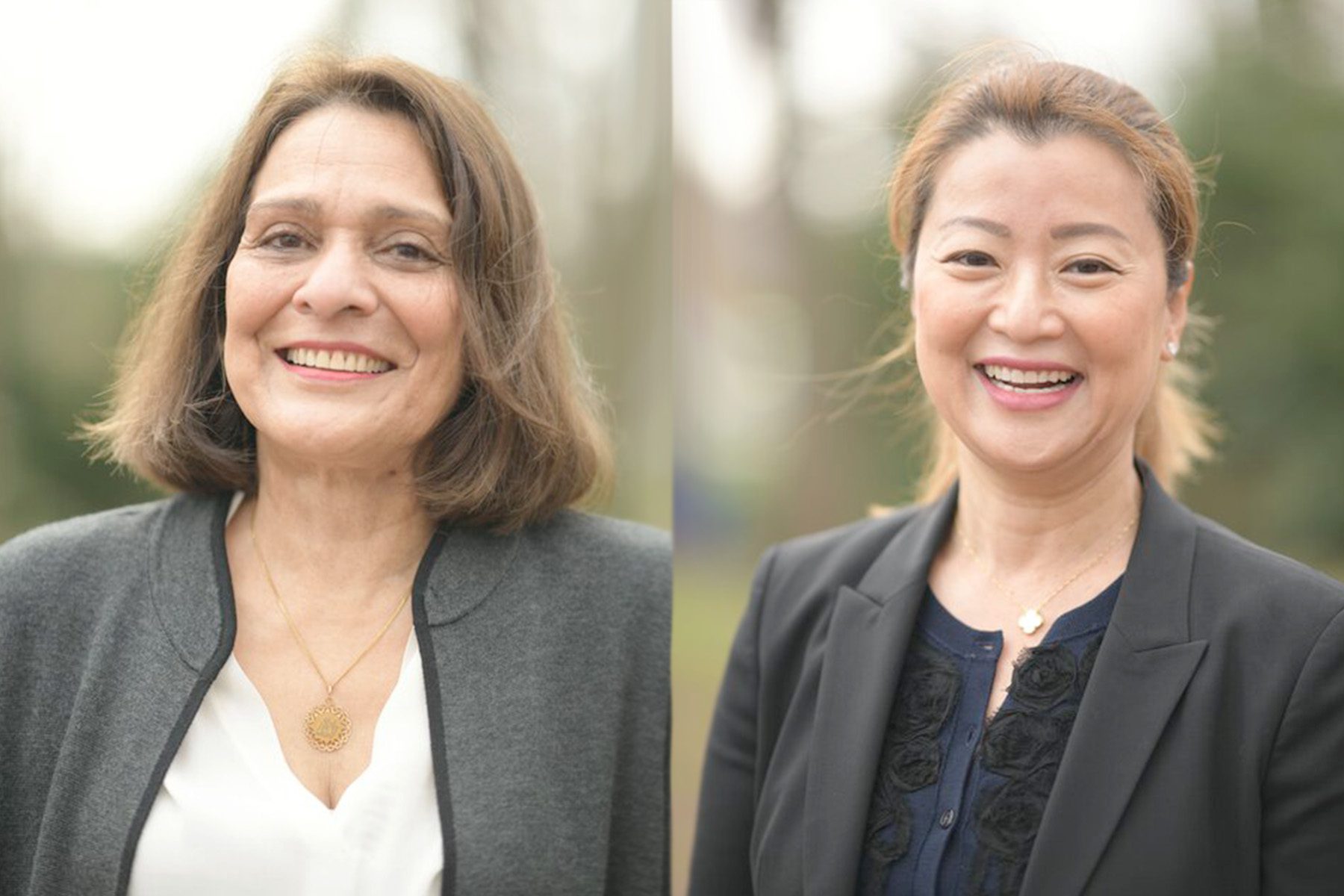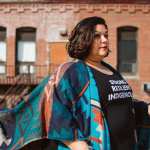In its more than 200 years of existence, the New Jersey legislature has never had an Asian American or Pacific Islander (AAPI) woman elected to serve as a lawmaker.
Ellen Park hopes to change that. She is among at least six AAPI women candidates on the November 2 ballot for the statehouse this election year. Growing up in New York after immigrating to the United States at 6 years old, she rarely saw people who looked like her in politics. She could become the first Korean American woman elected to the legislature.
“It can be a little bit mind boggling because it’s 2021,” she said. “But I think this way, this opens the door for younger people — students who are coming out of college now. They can relate and say, ‘Oh well maybe I would like to be a politician someday.’”
Asian Americans are the fastest-growing racial group in New Jersey according to the latest Census data. They account for more than 10 percent of the state’s population, but only three AAPI state lawmakers — all men — serve in the 120-member legislature.
Jean Sinzdak, associate director for the Center for American Women and Politics (CAWP) at Rutgers University in New Jersey, called the state’s lack of AAPI women lawmakers “shocking” given the changing demographics of the state. At least a handful of the women running this year are expected to win.
“It would feel like a huge breakthrough. It shouldn’t feel like a huge breakthrough in this moment. It should have been a lot sooner,” she said. “But … depending on how it all plays out, it looks very likely so it’s a real celebratory moment for Asian women in the state.”
Ghida Dagher is president of the New American Leaders, a national organization that recruits and trains first- and second-generation Americans to run for office. She said the lack of AAPI representation in the New Jersey statehouse shows the institutional barriers that have prevented women, particularly women of color, from running and winning. But the gender disparity is especially pronounced for new Americans who are part of the AAPI community — of the 84 legislators in any state who identified as Asian Pacific Islander and New American in 2020, only 29 were women.
First- and second-generation “new Americans,” by the group’s definition, make up 26 percent of the U.S. population but only 3.5 percent of statehouse seats.
“There are institutional barriers that have prevented women who are new Americans and women of color in general from running for office, especially obviously for those who are new Americans that are newer to the country,” she said.
The AAPI (or API) designation includes people from all over Asia and their descendants, as well as people descended from native people in Pacific Islands, including Hawaii. (The label is so broad, there is ongoing debate on whether it should be separated to be more inclusive to Pacific Islanders.)
Varun Nikore is executive director of AAPI Victory Alliance, a national organization that focuses on civic engagement. Nikore said White people are more likely to have connections to people with the money and relationships to help them seek and win office. The lack of such a network can be a barrier to people of color.
“In areas that tend to see a lot of first-generation immigrants, like New Jersey, you don’t have those inherent networks,” he said. “You have to build them organically — and it takes time.”
There appears to be no one reason for the lack of representation. Shama Haider, another AAPI candidate this year, has a guess. A Muslim woman born in Pakistan, she suspects that for some AAPI people, those whose families are more recent immigrants to the United States, there are more immediate priorities than running for office. Recent research on Asian Americans in New Jersey indicates two-thirds of Asian Americans in the state are immigrants because of formal legal restrictions placed on Asian immigration until the mid 1960s.
“When you’re an immigrant and you start your life in a different country to find your way, the first instinct seems to be, just do all the right things: Work hard, move ahead, make the place better for your children,” said Haider, a Democrat. “Now I think that it’s been several years that our communities have been here and have been flourishing. I think then you start saying, ‘I have to take part in something.’
Like many immigrants who came as young children, Park said she was raised to keep “her head down” to focus on her studies. That evolved after she went to law school and got involved with an Asian American club and later when she helped with a voter registration drive for Asian Americans. She struggled to get a lot of people to participate.
“I remember standing there for days, like over the weekend, and I think I only got two people to register … from then on, you know, I’ve always had a curiosity,” she said.
Most AAPI women running for the New Jersey statehouse are Democrats, though at least two are Republicans. Raya Arbiol, a Democrat, decided to get more politically engaged after the 2016 presidential election. She said Donald Trump’s election raised fear among people she knows from different immigrant communities about potential deportations.
“I’ve never thought of myself as the candidate but at that moment, I told myself, ‘It’s time for me to not just be a volunteer helping candidates. I need to be the one reflecting all the needs that need to get addressed in my community,’” recalled Arbiol, who is Chinese Filipino. “And so that’s when it started hitting me hard that now I want to run for office.”
That reasoning is not surprising to Nikore. He said Trump’s election and policies spurred AAPI communities to vote. Party identification varies by origin group, but they are credited with helping President Joe Biden in key battleground states including Georgia. Nikore suspects the effects of the coronavirus pandemic, including the rise in anti-AAPI violence, will play a role in future civic engagement. His group plans to expand its recruitment and training of AAPI candidates.
“In the end, it’s [Trump’s] rhetoric that caused him to lose this election, and it’s his rhetoric and the incitement of hatred that also caused our community to rise to these levels,” he said.
Sinzdak, who said she can’t remember there ever being so many AAPI women on the ballot for the statehouse, believes a gradual effort to recruit AAPI women to get more involved in politics is partly coming into focus. CAWP, which hosts an annual campaign training program for New Jersey women, started a diversity initiative in 2007 that included programming focused on Asian American women.
Since then, more training groups have joined those recruiting efforts, and more AAPI women have been elected to local office in New Jersey, which Sinzdak suspects has created a network of politically engaged women encouraging each other to run.
Haider is a former councilwoman. So is Park, one of her running mates for a statehouse district in the northwest corner of the state. (In New Jersey’s political system, a three-person ticket can be elected to represent one district in the legislature).
Park said the timing had to work for her to run. A trained attorney who was working for an insurance brokerage firm, she turned down a new job, giving her the time to run for office. But with two children, it was still a hard decision. The New Jersey statehouse is considered a part-time legislature, as are the bulk of statehouses in America. According to the National Conference of State Legislatures, New Jersey lawmakers make $49,000, above the national average of $41,000. But in neighboring New York, it’s a full-time job, and pays more than twice as much.
“I wish there were more moms or more women who could do this full time,” said Park, a Democrat. “If the salary and the benefits were competitive, just like New York, I think that would definitely change the game.”
Sinzdak added that state party officials, particularly in a place like New Jersey, have the power to recruit women and women of color to successfully run for office.
“There needs to be an intentional effort to bring more diverse women into the mix,” she said.
Anjali Mehrotra, a Democratic candidate for the statehouse who unsuccessfully ran for her local council in 2018, said the dynamics of the election in New Jersey — polling favors the incumbent governor — means candidates have struggled with voter apathy. She has made a point to reach out to AAPI communities to make a case for having “political capital” at the statehouse.
“One of the lessons running from 2018 was to run as my sort of authentic self,” she said. “Every time I talk to a potential voter, or in groups, I always talk about two things: the importance of getting more women elected, and of AAPI representation.”
Dagher said the statehouse will become more inclusive as more candidates run community-driven campaigns that focus on canvassing and outreach and direct voter engagement.
“What we’re seeing in New Jersey is sort of a case study for the rest of the nation as well,” she said. “By leaning into their authentic stories and experiences, the new American candidates can and should run and win.”








